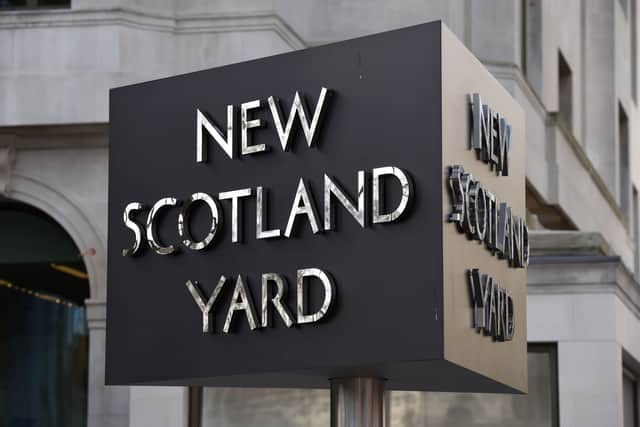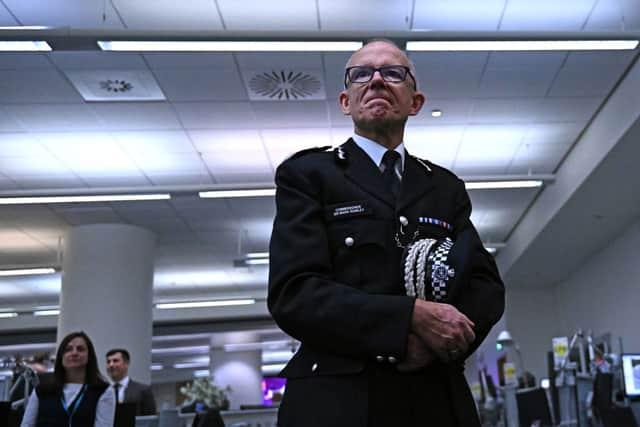Met Police: what did watchdog say about police force in report - how did Met bosses respond?
and live on Freeview channel 276
A watchdog has raised “serious concerns” over the performance of the Metropolitan Police, after finding “failings” in several areas of work.
His Majesty’s Inspectorate of Constabulary and Fire & Rescue Services (HMICFRS) has urged Met Police bosses at Scotland Yard to make immediate changes to the running of the police force. The Met Police have said that they are “committed” to making these changes.
Advertisement
Hide AdAdvertisement
Hide AdIt comes only five days after Sir Mark Rowley took over as Commissioner of the force. He will attempt to regain trust in the Met Police following high profile controversies over the past few years, including the handling of the murder of Sarah Everard, and the uncovering of offensive behaviour and messages shared between Charing Cross officers.


What did the watchdog say about the Met Police?
The watchdog graded the Met Police as ‘inadequate’ at responding to the public. The HMICFRS also found it required improvement in investigating crime, protecting vulnerable people, managing offenders, developing a positive workplace and making a good use of resources.
The report did categorise the force as ‘adequate’ for two areas of police work but the Met was only found to be good in one other.
It comes after the Met Police was placed into special measures by the HMICFRS three months ago. Inspector of Constabulary Matt Parr said: “[The latest report] raises serious concerns about how the force responds to the public and the level of understanding the force has about its demand and its workforce”.


Advertisement
Hide AdAdvertisement
Hide AdThe force currently answers 63.9% of 999 calls within 10 seconds, against a national target of 90%. It also sees 36.6% of calls to the non-emergency number 101 abandoned, compared with a goal of less than 10%.
Mr Parr said: “The Met must get better at how it responds to the public – currently, its call handling teams are unable to answer calls quickly enough. In addition, it isn’t correctly documenting the decisions of victims to withdraw from an investigation or to accept an out-of-court disposal.
“Recording victims’ wishes is vital to support the criminal justice process and to understand what is stopping victims from being able to complete the investigation process. The Met must improve in this area.”
What has the Met Police said about the watchdog findings?
The Met Police has accepted the watchdog’s findings, and have pledged to turn things around under new Commissioner Sir Mark Rowley. Sir Mark was promoted to the top job following the resignation of Dame Cressida Dick from the role.
Advertisement
Hide AdAdvertisement
Hide AdDame Lynne Owens, Deputy Commissioner, said: “Our new Commissioner, Sir Mark, has returned to policing with a clear plan for change at the Met. We are both determined to renew policing by consent, working with communities to deliver the kind of police service Londoners need and deserve.
“We will be using data and insight to improve the Met’s performance on crime fighting and prevention. We want to remove as many hurdles as possible to make it easier for hardworking officers to fight crime, deliver justice and support victims.
“Our pledge to London is ‘more trust, less crime, high standards’. Here, at the start of our first 100 days, we are drawing together expertise from across the Met and beyond, listening to our communities and the workforce, to put in place the right plans and take swift action to deliver our pledge.
“We are working closely with His Majesty’s Inspectorate of Constabulary and Fire & Rescue Services (HMICFRS), the Mayor’s Office for Policing and Crime (MOPAC), and other policing partners, as part of the ‘engage’ process that will help us to turn around our performance. We thank them for their ongoing support.”
